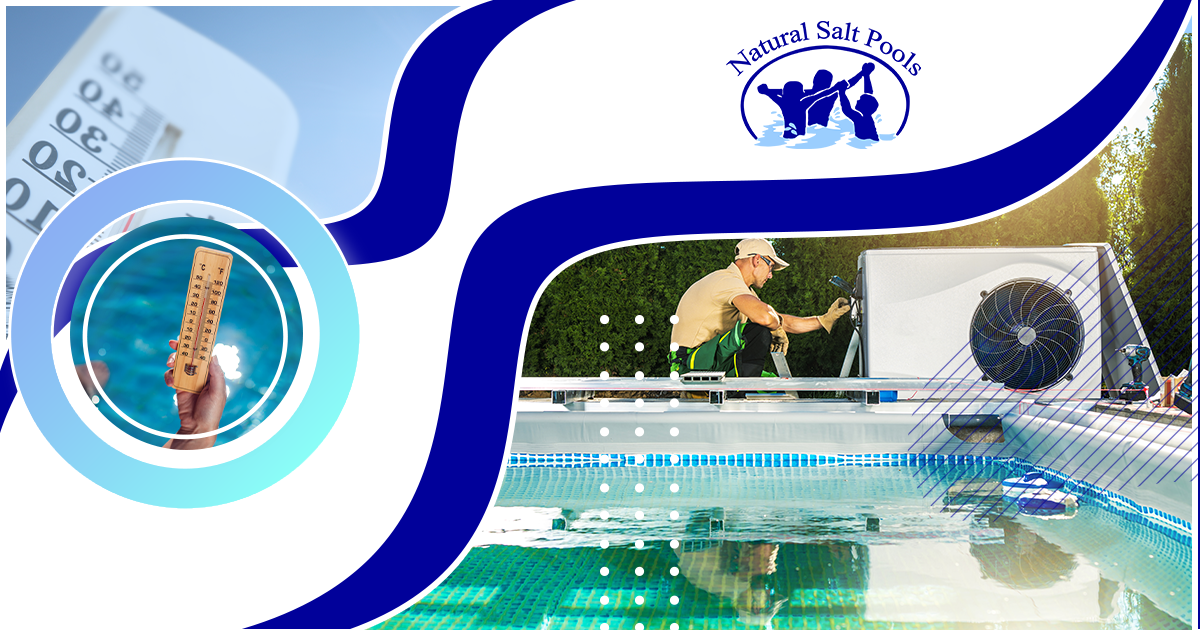Pool heaters play a crucial role in maintaining the water temperature of swimming pools, especially in regions with cooler climates or during colder seasons. They help to maintain comfortable water temperatures, extend the swimming season, and enhance the overall enjoyment and usability of swimming pools for owners. The cost of installing a pool heater can vary widely depending on factors such as the type of heater, size of the pool, location, labor costs, and additional equipment needed. Pool heater installation costs typically range from $1,500 to $5,000. Here’s the role and how pool heaters work:
- Maintaining comfortable temperature: Pool heaters ensure that the water in the pool stays at a comfortable temperature for swimming. This is particularly important in regions with cooler climates or during colder seasons when natural heating from the sun may not be sufficient to keep the water temperature comfortable.
- Extending swimming season: In colder climates, pool heaters allow swimming pools to be used for a longer period throughout the year. Without a heater, swimming might be limited to just the warmer months, but with a heater, the pool can be used even during spring and fall.
- Increasing pool usage: Pool heaters can increase the overall usage of the pool, making it more enjoyable for homeowners and their guests. Whether it’s for exercise, relaxation, or recreation, maintaining a comfortable water temperature makes the pool more inviting.
- Temperature control: Pool heaters typically come with temperature control mechanisms that allow users to set and maintain the desired water temperature. This ensures that the water remains at a comfortable level for swimming while also preventing overheating or excessive energy consumption.
- Maintenance: Proper maintenance of pool heaters is essential to ensuring their efficient operation. This includes regular cleaning, inspection, and servicing to prevent issues such as corrosion, scaling, or component failure. Additionally, following manufacturer recommendations and scheduling professional maintenance can prolong the lifespan of the heater and optimize its performance.
What are the different types of pool heaters available?
There are several types of pool heaters available on the market, each utilizing different energy sources and heating mechanisms. Here are the main types of pool heaters available:
- Gas Pool Heaters: Gas heaters use either natural gas or propane to generate heat. They are known for their quick heating capabilities, making them ideal for quickly raising the temperature of the pool water, especially in colder climates. They are suitable for pools of various sizes and are often preferred for their ability to heat the water rapidly. However, gas pool heaters can be less energy-efficient compared to gas vs electric pool heaters, and the cost of fuel can be a consideration.
- Electric Resistance Heaters: Electric heaters use electricity to heat the water. They work by passing an electric current through a heating element, which heats up and transfers the heat to the water. Electric heaters are generally more energy-efficient than gas heaters, but they may take longer to heat the water. In the context of gas vs electric pool heaters, electric heaters are often preferred for smaller pools or in areas where natural gas or propane is not readily available.
- Heat Pumps: Heat pumps use ambient air to heat the pool water. They work by extracting heat from the air and transferring it to the water through a refrigerant cycle. Heat pumps are highly energy-efficient, making them a popular choice for pool heating. They are particularly effective in moderate climates but may be less efficient in very cold climates. Heat pumps have higher upfront costs compared to gas or electric heaters but can result in lower operating costs over the long term.
- Solar Pool Heaters: Solar heaters use energy from the sun to heat the pool water. They consist of solar panels or collectors installed on the roof or ground near the pool, through which water is circulated and heated by the sun’s rays. Solar pool heaters are environmentally friendly and can significantly reduce operating costs once installed. They are most effective in sunny climates but may be less efficient during cloudy days or in shaded areas. Solar heaters have relatively low operating costs once installed but can have higher upfront costs compared to other types of heaters.
- Hybrid Pool Heaters: Hybrid heaters combine two or more heating methods to provide efficient pool heating. For example, a hybrid heater might combine a heat pump with a gas or electric heater to provide supplemental heating when needed. Hybrid heaters offer flexibility and efficiency by utilizing multiple heating sources based on factors such as outdoor temperature, energy costs, and heating demands.
 Leave us a review on Google !
Leave us a review on Google !






